Resources

Click Here for Book Review Abstract: There is still resistance in Christian institutions to interreligious dialogue. Many feel that such a practice weakens Christian faith, and promotes the idea that Christianity is merely one among many different religious options. When it comes to higher education, there is the fear that both college and seminary students will “lose their faith” if they are invited to study other religious traditions from a positive perspective. Unfortunately, this attitude belies the current culture in which we live, which constantly exposes us to the beliefs and practices of others. Kristin Johnston Largen sees this setting as an opportunity and seeks to provide not only the theological grounding for such a position but also some practical advice on how both to teach and live out this conviction in a way that promotes greater understanding and respect for others and engenders a deeper appreciation of one’s own faith tradition. Largen’s synopsis of interreligious education and suggested action includes contributions by Mary E. Hess and Christy Lohr Sapp. Hess and Sapp provide practical commentary regarding the successful implementation of Largen’s proposed approach. As a group, Largen, Hess, and Sapp create a text that extends pedagogical innovation in inspiring but practical ways. (From the Publisher)
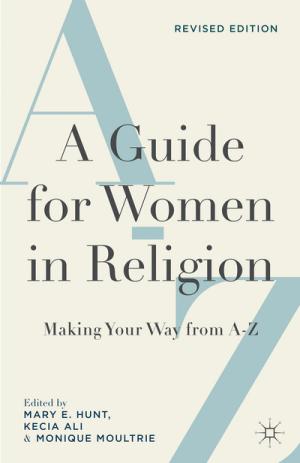
Click Here for Book Review Abstract: The Guide is a welcome companion for women in religious studies. From undergraduates to retired professors, this distilled wisdom of several generations of colleagues is an important book to have handy. Whether seeking a job, preparing for tenure, working at a non-profit organization, entering the publishing world, figuring finances, mentoring or being mentored, the reader will find just what she (or he—men find it useful too) needs to know. This volume reflects the diversity of women's experiences, the range of opportunities, the pitfalls and promises of religious studies that span ministry, academia, and activism. It is a good investment for one's future career and a welcome gift for students. This second edition is updated to reflect the rapidly changing field, especially technological innovations. (From the Publisher)

"Graff offers a highly readable and down-to-earth perspective on some of the most ballyhooed issues in higher education today. . . . By encouraging us to argue together, he may yet help us to reason together."—Henry Louis Gates, Jr. Higher education should by a battleground of ideas: the real problem, Gerald Graff says, is that students are not getting more out of the battle. In this lively book, Graff argues that the "culture wars" now being fought over multiculturalism and political correctness are actually a sign of the intellectual vitality of American education—but they need to be used creatively, made part of the educational process itself. (From the Publisher)
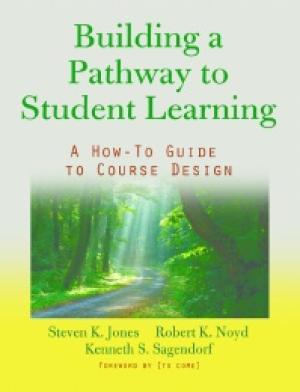
Click Here for Book Review Abstract: This book leads you through the process of designing a learning-centered course. It is written as a “how-to” handbook, providing step-by-step guidance on creating a pathway to student learning, including 26 workboxes (also available free online) that lead you through each element of the course design process and promote a rich reflection process akin to being in a workshop setting. The authors prompt you to (1) consider the distinctive characteristics of your students; (2) clearly articulate your course learning goals; (3) create aligned summative assessments; (4) identify the specific knowledge, skills, and attitudes students will need in order to be successful; (5) craft effective learning experiences, informed by the well-documented research on how people learn; and (6) incorporate formative assessment to ensure you and your students are staying on track. Completion of the sequence of worksheets leads to a poster as a visual display of your course design. This graphic depiction of your course ties the components together, provides a clear map of action for teaching your course, for modifying as you evaluate the success of particular strategies or want to introduce new concepts, and for developing your syllabus. A rubric for evaluating course posters is included. For faculty developers, this book provides a proven and ready-made resource and text around which to design or redesign learner-centered course design workshops or multi-day course design retreats, replicating or modifying the renowned workshop that the authors have developed at the Air Force Academy for both faculty new to teaching and those with many years of teaching experience under their belt. (From the Publisher)
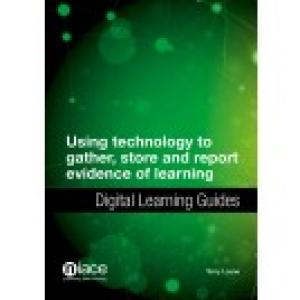
The use of digital technology to capture evidence of learning has been an area of rapid development recently, both in terms of the devices (such as smartphones and tablet computers) and the range of e-portfolios that has become available. Such a rapid pace of change is a major challenge to established practice in assessing learning, which can be daunting for tutors and assessors, even those who have sought to embrace technology in their practice. This book provides lots of straightforward, practical advice on how to use digital technology confidently and effectively to gather, store and report evidence of learning. It will be highly valuable to any adult learning practitioner or manager involved in collecting evidence either for accredited programmes (such as apprenticeships) or for non-accredited programmes. Terry Loane explains how to use both the latest hardware and online systems such as e-portfolios. He also describes how technology is now helping adult educators to move away from the ‘tick-box culture’ towards broader and more holistic methods of recording learners’ achievements. (From the Publisher)
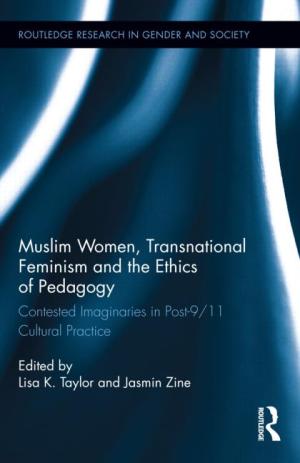
Click Here for Book Review Abstract: Following a long historical legacy, Muslim women’s lives continue to be represented and circulate widely as a vehicle of intercultural understanding within a context of the "war on terror." Following Edward Said’s thesis that these cultural forms reflect and participate in the power plays of empire, this volume examines the popular and widespread production and reception of Muslim women’s lives and narratives in literature, poetry, cinema, television and popular culture within the politics of a post-9/11 world. This edited collection provides a timely exploration into the pedagogical and ethical possibilities opened up by transnational, feminist, and anti-colonial readings that can work against sensationalized and stereotypical representations of Muslim women. It addresses the gap in contemporary theoretical discourse amongst educators teaching literary and cultural texts by and about Muslim Women, and brings scholars from the fields of education, literary and cultural studies, and Muslim women’s studies to examine the politics and ethics of transnational anti-colonial reading practices and pedagogy. The book features interviews with Muslim women artists and cultural producers who provide engaging reflections on the transformative role of the arts as a form of critical public pedagogy. (From the Publisher)

Click Here for Book Review Abstract: Once intent on being good to people, Jane Addams later dedicated herself to the idea of being good with people, establishing mutually-responsive and reciprocal relationships with those she served at Hull House. The essays in Jane Addams in the Classroom explore how Addams's life, work, and philosophy provide invaluable lessons for teachers seeking connection with their students. Balancing theoretical and practical considerations, the collection examines Addams's emphasis on listening to and learning from those around her and encourages contemporary educators to connect with students through innovative projects and teaching methods. In the first essays, Addams scholars lay out how her narratives drew on experience, history, and story to explicate theories she intended as guides to practice. Six teacher-scholars then establish Addams's ongoing relevance by connecting her principles to exciting events in their own classrooms. An examination of the Jane Addams Children's Book Award and a fictional essay on Addams's work and ideas round out the volume. Accessible and wide-ranging, Jane Addams in the Classroom offers inspiration for educators while adding to the ongoing reconsideration of Addams's contributions to American thought. Contributors include Todd DeStigter, Lanette Grate, Susan Griffith, Lisa Junkin, Jennifer Krikava, Lisa Lee, Petra Munro, Bridget O'Rourke, David Schaafsma, Beth Steffen, Darren Tuggle, Erin Vail, and Ruth Vinz. "These well-crafted essays continue the conversation about Jane Addams as a distinctive voice in American letters, one that appeals to scholars across academic disciplines. David Schaafsma's collection speaks to a wide variety of readers, particularly those who are themselves teachers."--Katherine Joslin, author of Jane Addams: A Writer's Life "Jane Addams in the Classroom makes major contributions to scholarship on Jane Addams--but also, more broadly, to educational leadership models and teachers’ own individual avenues to social activism. By connecting with Addams as a theorizing story-teller, as well as with scholarship on Dewey, Freire, and other advocates for progressive pedagogy, this collection provides a useful lens for educators seeking to examine their own teaching practices critically. Given the pivotal role that Addams played in community-based education promoting sustained civic engagement, this book is long overdue."--Sarah R. Robbins, author of Managing Literacy, Mothering America (From the Publisher)
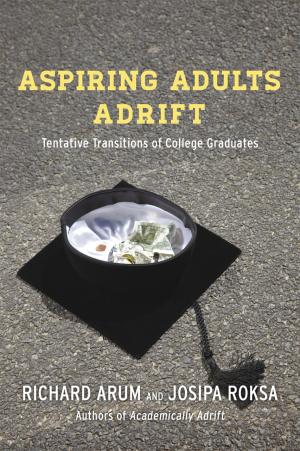
Click Here for Book Review Abstract: Few books have ever made their presence felt on college campuses—and newspaper opinion pages—as quickly and thoroughly as Richard Arum and Josipa Roksa’s 2011 landmark study of undergraduates’ learning, socialization, and study habits, Academically Adrift: Limited Learning on College Campuses. From the moment it was published, one thing was clear: no university could afford to ignore its well-documented and disturbing findings about the failings of undergraduate education. Now Arum and Roksa are back, and their new book follows the same cohort of undergraduates through the rest of their college careers and out into the working world. Built on interviews and detailed surveys of almost a thousand recent college graduates from a diverse range of colleges and universities, Aspiring Adults Adrift reveals a generation facing a difficult transition to adulthood. Recent graduates report trouble finding decent jobs and developing stable romantic relationships, as well as assuming civic and financial responsibility—yet at the same time, they remain surprisingly hopeful and upbeat about their prospects. Analyzing these findings in light of students’ performance on standardized tests of general collegiate skills, selectivity of institutions attended, and choice of major, Arum and Roksa not only map out the current state of a generation too often adrift, but enable us to examine the relationship between college experiences and tentative transitions to adulthood. Sure to be widely discussed, Aspiring Adults Adrift will compel us once again to re-examine the aims, approaches, and achievements of higher education. (From the Publisher)
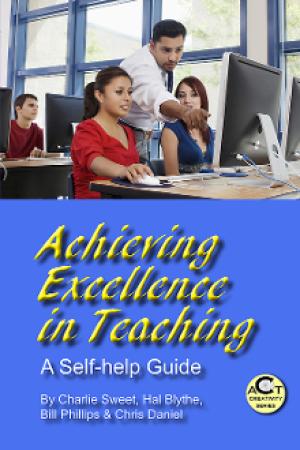
Click Here for Book Review Abstract: This book is designed not only to provide you with a tightly focused set of strategies, selecting only the most fundamental and powerful, but also to offer you a user-friendly method to access your level of success through employment of the strategies. With the authors’ goal of measurable self-improvement in mind, they’ve developed a set of rubrics keyed to each chapter, allowing you to assess where you currently stand as an instructor. Using a Likert scale, the rubrics ask you to evaluate such things as your attitude toward teaching, your alignment of student learning outcomes (SLOs) in your classes with those of larger academic units, and your delivery of class material. At the book’s end you’ll find a series of rubrics that replicate those in the earlier chapters. Comparison of your responses after experimenting with the various strategies offered throughout the text should provide a solid assessment of the handbook’s effectiveness. So, you may start today on a focused, fast path to achieving teaching excellence in your classrooms. (From the Publisher)
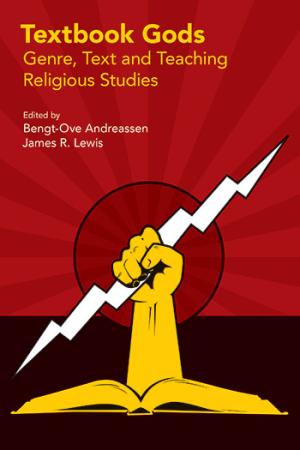
Click Here for Book Review Abstract: In recent years there has been a renewed interest in textbooks, partly because they have maintained their position as an important genre. Not too many years ago – and perhaps currently as well – many considered textbooks outdated or archaic compared with technological advances such as the Internet and different kinds of educational software. Despite these changes, textbooks for school subjects and for academic studies continue to be in demand. Textbooks seem to constitute a genre in which established truths are conveyed, and may thus represent stable forces in a world of flux and rapid changes. Textbook Gods offers perspectives on representations of religion and religions in textbooks. The contributions emerge from different contexts, ranging from European countries, to North America, Japan and Australia. (From the Publisher)